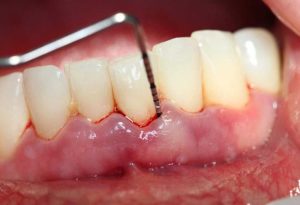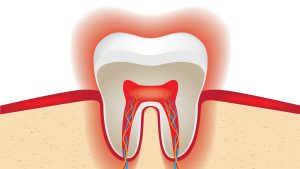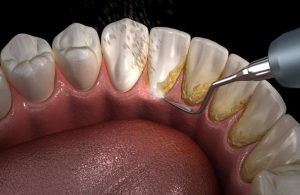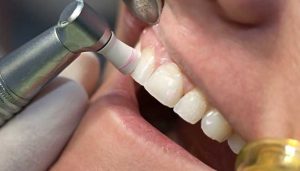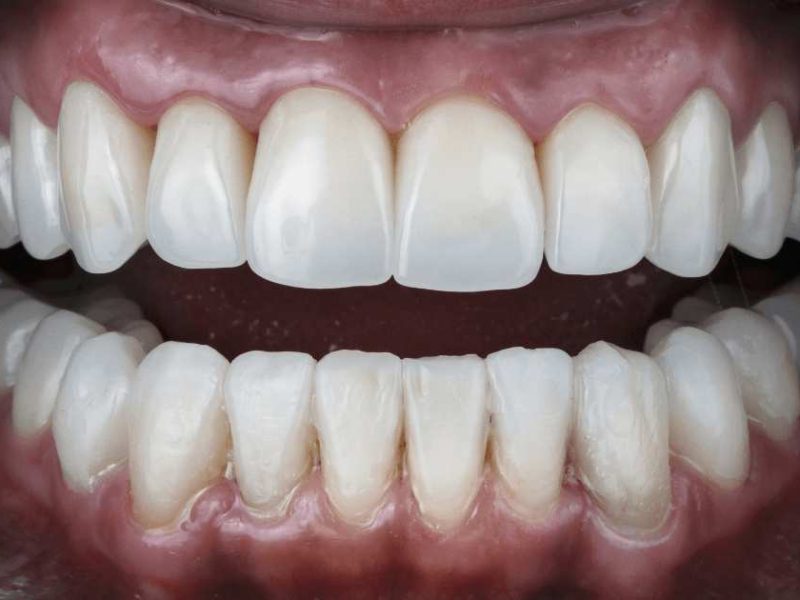A good smile depends on good oral hygiene and general health depends much on it as well. Usually advised for those with gum disease (periodontitis), deep cleaning teeth—also known as scaling and root planing—is a specialist dental treatment. This treatment is meant to eliminate tough plaque and tartar accumulation from under the gum line, where normal cleaning cannot reach and thus aid to stop gum disease from spreading, lower inflammation, and encourage gum healing. Although the advantages of thorough cleaning—such as halting the growth of gum disease, lowering bacterial buildup, and restoring gum health—are well-documented, it’s equally crucial to understand that this operation is not without risk. Knowing the disadvantages of deep cleaning teeth will enable you to make a better selection by making sure you balance the possible side effects against the long-term benefits.
We will explore the risks, side effects, and possible consequences of deep cleaning teeth in this all-encompassing guide. We will also offer practical advice on how to reduce pain and hasten healing so you are completely ready for the operation and its aftercare.
What is dental deep cleaning?
Deep cleaning is a specialist dental operation meant to cure gum disease by eliminating germs, tartar, and plaque from below the gum line. Unlike a standard cleaning (prophylaxis), which concentrates on the surfaces of the teeth, deep cleaning targets the pockets that grow between teeth and gums due of gum disease.
Key advantages of deep cleaning:
- Halts periodontitis’s spread;
- Lowers gum inflammation;
- Promotes gum reattachment to teeth;
- Prevents tooth loss.
Like every medical operation, though, it carries some dangers. Now let’s discuss the drawbacks of deep cleaning teeth for which you should be aware.
Important Disadvantages of Deep Cleaning Teeth
Gum and tooth sensitivity
Enhanced tooth sensitivity is one of the most direct and frequent negative effects of deep cleaning teeth. The tooth roots may be momentarily exposed following the elimination of tartar and plaque, which increases their sensitivity to temperature variations and some meals. This implies you might get uncomfortable eating hot, cold, sweet, or even spicy foods. The sensitivity also covers brushing and flossing, which makes your everyday dental hygiene regimen quite unpleasant. As your gums heal and reconnect to the teeth, this sensitivity usually declines over time; but, it could take several days to weeks for the discomfort to totally go away.
Causes:
- Gum tissue was momentarily pulled back from teeth.
- Exposed roots following cleaning.
How to Manage:
- Use desensitizing toothpaste (such as Sensodyne).
- Steer clear of really hot foods and beverages.
- Follow up with fluoride treatments if advised.
Discomfort and Pain
Pain Management Tips
- Pain and suffering are common during and following the operation, particularly in cases of eliminated significant accumulation.
- Use over-the-counter painkillers (such as ibuprofen).
- Rinse with a warm saltwater solution.
- Keep to soft foods including yogurt, mashed potatoes, and soups.
Potential for Infection
Though rare, extensive cleaning might expose small gingral lesions that increase a person’s susceptibility to infection.
Signs to Watch For:
- Fever.
- Pus or discharge from gums.
- Swelling that does not go away.
- Foul taste or odor.
Prevention:
- Use recommended antibacterial mouth rinses.
- Strict post-procedural cleanliness.
- Avoid smoking since it inhibits recovery.
Gum Retraction
One side effect of thorough dental cleaning is gum recession. Your gums could slightly pull back when plaque is taken off to reveal more of the tooth surface.
Consequences:
- Longer-looking teeth raise aesthetic issues.
- Increased sensitivity.
- Higher risk of cavities on exposed roots.
In severe circumstances, gum recession can call for further treatments like gum grafting.
Tooth Looseening
After a full cleaning, especially if you had significant periodontal pockets, teeth could feel somewhat looser.
Important Note: Deep cleaning exposes the pre-existing damage caused by advanced gum disease; it does not produce tooth looseness.
If teeth remain loose over time, you might require more periodontal treatments including splinting or possibly extraction in severe circumstances.
Several Visits Necessitous
Usually, deep cleaning is not one-visit operation. Dentists may plan cleanings for moderate to severe gum disease by quadrant, or one-fourth of the mouth at a time.
Possible disadvantages:
- Time commitment.
- Cost of many treatments.
- Extended healing time for a full mouth.
Temporary Aesthetic Alterations
Some patients report that following deep cleaning:
- Their teeth appear longer because of gum recession.
- Show little gaps (from less edema around teeth).
Although these changes are usually fleeting, they could initially lower your self-confidence.
Comparatively Deep Cleaning vs Regular Cleaning:
|
Aspect |
Regular Cleaning |
Deep Cleaning |
|
Purpose |
Maintain oral hygiene |
Treat gum disease |
|
Depth |
Above the gumline |
Below the gumline |
|
Frequency |
Every 6 months |
As needed (for gum disease) |
|
Sensitivity Risk |
Low |
Moderate to High |
|
Appointments |
One session |
Multiple sessions |
Who Should Ask Twice Regarding Teeth Deep Cleaning?
Although deep cleaning is generally safe, for patients with compromised immune systems (because of infection risk) it may not be best:
- Those having heart valve problems (risk of bacterial endocarditis)
- Pregnant ladies, in some situations
- Patients prone to allergies sensitive to dental products or anesthesia
Before planning extensive cleaning, always review your whole medical history and always visit your periodontist or dentist.
How to Reduce the Disadvantages of Teeth Deep Cleaning
Although the disadvantages of deep cleaning teeth sound worrying, there are practical strategies to reduce them:
- See a seasoned periodontist or dentist: Expertise in particular guarantees safer and more pleasant treatments.
- Key is strict oral hygiene—brushing twice a day, flossing daily, and using an antibacterial mouthwash.
- Take prescribed drugs, visit follow-up appointments, and rest correctly according to aftercare advice.
- Eat a healing diet. Foods high in calcium, zinc, and vitamin C will help gum healing speed-up.
- Stay hydrated: Water hastens recovery and helps clear bacteria.
Substitutes for Deep Cleaning Teeth
Should you be reluctant about deep cleaning, talk to your dentist about these substitutes:
- Laser Gum Therapy: Treatment to eliminate diseased tissue with minimum invasions.
- Localized Antibiotic Therapy: Periodontal pockets’ insertion of antibiotic gels or fibers.
- Frequent professional cleanings help to control minor gum disease without involving aggressive scaling.
These substitutes might not be as successful, though, for moderate to severe cases of periodontitis.
In the fight against gum disease, deep cleaning teeth is surely a vital and quite successful weapon. By helping to remove dangerous plaque and tartar accumulation that can aggravate periodontal problems, it significantly reduces tooth loss and enhances general gum health. Deep cleaning does, however, have certain drawbacks that should be taken into account, much as any medical treatment. The most often mentioned adverse effects include increased sensitivity, infection risks, and gum recession; while these may be controlled, preparation for the operation depends on an awareness of these beforehand.
Should your dentist advise extensive cleaning, it is imperative that you not hesitate to have honest discussion regarding the treatment. Inquire about expectations, the length of the operation, the recovery schedule, and any post-treatment care you might have to follow. Being totally educated helps you to feel more at ease during the process and make wiser judgments. Moreover, designing a personalized aftercare schedule with your dentist fit for your particular requirements will help you to reduce discomfort and hasten the healing process.
Following your dentist’s recommendations and keeping on top of your oral hygiene will help you not only control possible side effects but also preserve healthy gums and teeth over the long run. Treating the operation as a necessary component of your whole dental health path will help you to guarantee that your smile stays strong, healthy, and vivid for many years to come.
Frequently Asked Questions
Is extensive cleaning absolutely essential?
If you have advanced gum disease, yes. Untreated periodontitis can cause tooth loss, bone loss, and systemic health problems.
How long does it take to heal after extensive cleaning?
Usually, initial recovery comes in one week. Based on the degree of gum disease and your general health, full tissue healing may take 4 to 6 weeks.
Will my teeth revert to normal after comprehensive cleaning,?
While gum health will get better, cosmetic procedures might be required to completely restore the natural look should a recession strike.
How could one avoid deep cleaning?
Maintaining frequent dental cleanings, correct brushing, and early flossing will help one prevent needing a deep cleaning.
